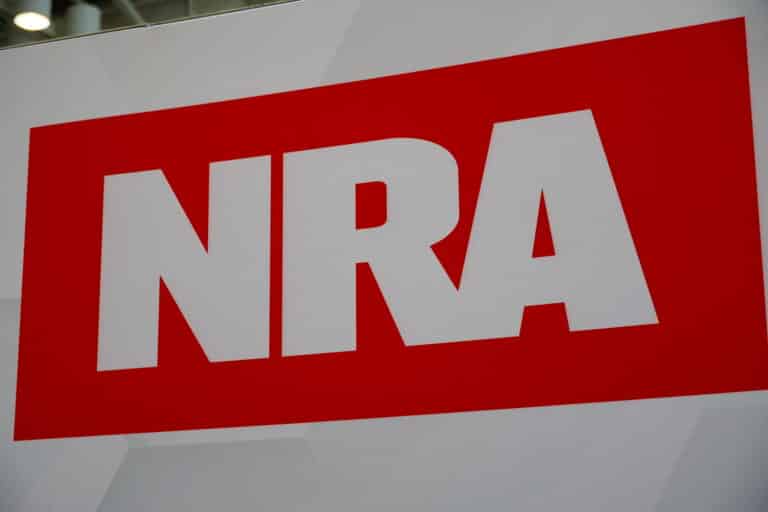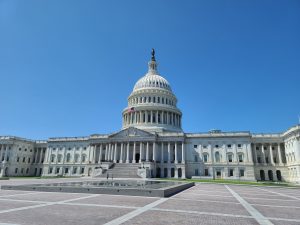The judge in the NRA’s corruption case denied the New York Attorney General’s request for a court-appointed monitor to oversee the organization. But that isn’t the end of the story for the nation’s largest gun-rights group.
The NRA’s defeat of a monitor is the major takeaway. It was the primary remedy offered up by the AG. It was also the one endorsed by several dissident NRA board members.
However, that doesn’t mean the NRA got what it was arguing for either. For one, Judge Joel Cohen barred former CEO Wayne LaPierre from rejoining the group in an official capacity for at least a decade. But there’s good reason to think his order will extend further than that.
“In my view, the record showed not only misconduct by individual officers and employees but also failures by the board of directors and its committees to properly supervise the expenditure of the NRA’s charitable assets and to react quickly and decisively once questions about financial management arose, which really began as early as the 1990s, though more specifically and pointedly in 2018,” he said.
Still, Judge Cohen agreed that a court-appointed monitor would be too “heavy-handed” and could even infringe on the NRA’s First Amendment rights. He also seemed convinced the group had made real progress on internal reforms, including by appointing reformers and whistleblowers to key positions. However, he wasn’t convinced everything had yet been fixed.
“As to the NRA itself, the evidence presented at trial suggests that there remain vestiges of the regime that presided over the period of unlawful behavior that still do not recognize their role in failing to identify and rectify the wrongdoing,” Judge Cohen said on Monday, according to the court transcript. “While the NRA members recently flexed their democratic muscles to promote reform efforts, current NRA leadership continues to place decisive authority in the hands of those who did not take a strong hand against improper behavior and chose instead to close ranks behind a leader, despite ample evidence of extraordinary misconduct.”
That’s why, in addition to his ruling from the bench, Judge Cohen ordered the NRA and AG’s office to discuss a series of six different remedies he proposed and get back to him. What becomes of those reforms will determine a lot about the new direction of the NRA.
The changes he suggested don’t rise to the level of a monitor, but they are still significant. They would shrink the size of the NRA’s 76-member board and prevent insiders from keeping qualified candidates out of board elections. They would also add an in-house consult to help the group’s new Chief Compliance Officer, who would himself get added job protections to insulate him from internal pressure.
Like with LaPierre, his recommendations would keep those on the Audit Committee during the corruption at issue in the case off from leading it today.
“The overarching goal of the NRA’s course correction and this Court’s decision today is to establish a clear break from past practices that the jury determined violated New York law,” Judge Cohen said.
He made it fairly clear that these reform requests aren’t likely to be mere suggestions. He said he wanted to give each side a chance to discuss the reforms with each other and offer up potential revisions or objections, but he made it clear he believed they ought to be relatively uncontroversial since he said they are in the NRA’s interest. The end result may be something along the lines of a settlement or consent decree.
“Those are the types of remedies I have considered,” Judge Cohen said. “However, since this trial was really not focused on that and has focused almost entirely on the monitor remedy, I would like to give the parties an opportunity to discuss this, to consider it carefully, and any other ideas they might have for what I hope would be a consent order, but if not a consent order, their arguments back and forth on the various things that I’ve suggested or proposed or thought about.”
Judge Cohen appears to be looking for something of a third way in the fight between the NRA and the AG. He’s not convinced the problems are persistent and severe enough to justify “potentially speech-chilling governmental intrusion.”
“The notion that the NRA would simply lapse back into, in the absence of ongoing court supervision, a place where internal controls are routinely overridden by entrenched leaders immune from scrutiny by a compliant and equally entrenched board of directors, with executives and their families jetting off on private planes to lavish locales, seems wildly unrealistic,” he said. “Possible but not probable.”
Still, he thinks the NRA’s conduct was egregious and isn’t fully corrected.
“The NRA was slow to reform, despite warning signs as early as 2003,” he said. “There remain leaders on key board committees who, while they do seem smart and earnest, are difficult to disentangle from their role as overseers while long-running and blatant violations of NRA policy and New York law was rampant at the highest levels of the organization and who were also intimately involved, in some cases, in ill-considered and wasteful efforts to avoid accountability, including the disastrous decision to pursue bankruptcy to avoid accountability rather than simply righting the ship as best they could.”
While he’s giving each said the opportunity to work out the details of the reforms, he let them know he’d be the one to decide what to do with them.
“Ultimately, it will be up to me whether to order them and what to do, but I would like more precise guidance on the points that I’ve made,” Judge Cohen said.
The trial is over, but how these reform recommendations actually materialize will determine much of the path forward for the NRA.







2 Responses
I’m impressed that the judge is being so even-handed and deliberate. The NRA needs a CULTURE change, and that means a LEADERSHIP change – I would have likes to see him “suggest” that any Board Member from the period in question is not eligible to serve future terms.
Judge Cohen has seemed very even-handed throughout this trial. He’s also clearly put a lot of thought into what he thinks would best serve the NRA’s members since he’s been willing to look beyond just what each side suggested in the case. He hasn’t pushed for removing anyone from the NRA other than LaPierre, though. Even LaPierre can still help the NRA in a voluntary role under the judge’s ruling if he wants to.